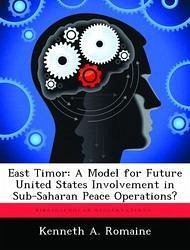The end of the Cold War shifted the United States' strategic focus from a clearly identified, monolithic national security threat to a less well-defined focus on international engagement. The resultant strategy was an attempt to maintain security through the promotion of democratic ideals and economic prosperity abroad. This shift has resulted in the U.S. armed forces becoming involved in numerous operations which previously had fallen outside - or at least on the periphery - of their primary mission. The success of operations in East Timor, with Australia as the lead nation and minimal U.S. support, created a potential option for U.S. civilian and military leaders that would reduce U.S. efforts in peace operations. This monograph addresses the likelihood that other nations could take the lead during contingency operations while receiving only limited support from the United States. The paucity of regional hegemons capable of fulfilling this role, especially in Africa, raises the question of whether this is a viable strategy for the U.S. in the short term. The monograph concludes that the lack of sufficient capabilities in current regional forces makes the East Timor model an impractical standard to set for future U.S. support in Sub-Saharan Africa. The United States will not be able to rely on potential lead nations such as Nigeria or South Africa for both political and military reasons in the near term. As such, the United States should not significantly alter its strategy of preparing its forces for the "full spectrum" of military operations. U.S. forces will be required to fulfill the role of lead nation in operations other than war while still maintaining critical capabilities to conduct full-scale conventional operations in the unlikely event of a major theater war. Continued efforts must be made to improve African nations' ability to conduct large-scale, multinational operations for long-term stability.
Hinweis: Dieser Artikel kann nur an eine deutsche Lieferadresse ausgeliefert werden.
Hinweis: Dieser Artikel kann nur an eine deutsche Lieferadresse ausgeliefert werden.








